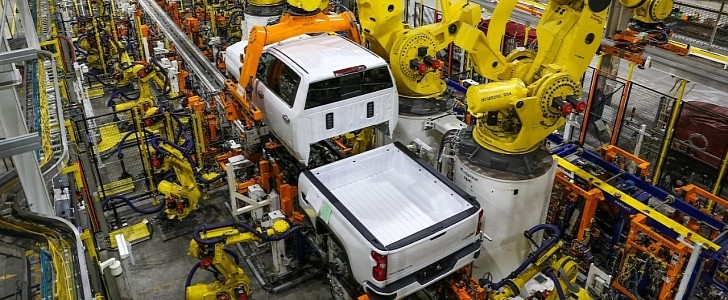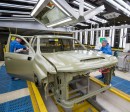General Motors is one of the companies that have been struggling with the lack of chips, and just like everybody else, one of the methods to cope with the whole thing was a temporary shutdown of certain assembly lines just because it didn’t have enough semiconductors to install on vehicles.
Needless to say, the production halts affected several popular models in the lineup of the brands it owns, but General Motors is now seeing the light at the end of the tunnel as some operations are returning back to normal.
The production of the Cadillac CT4 and the CT5 at the Lansing Grand River plant is finally ready to restart, as General Motors previously stopped making the sedans back in May. So after several months of almost no activity, the American company is finally resuming the manufacturing, though it goes without saying there’s no guarantee another shutdown wouldn’t be required unless the chip crisis improves.
More good news is coming for the Chevrolet Camaro as well, as the Lansing Grand River plant will also restart the production of this model after a temporary halt announced in mid-September.
And last but not least, General Motors says the production of the Buick Enclave and the Chevrolet Traverse, which takes place at the Delta Township Assembly, will soon be restarted as well.
While this is clearly good news for General Motors, it isn’t by any means the end of the global chip shortage.
Analysts have previously forecasted a slight recovery in the last months of 2021, so carmakers resuming the production of certain models more or less makes sense, but on the other hand, everybody expects the crisis to continue into 2022, and even worse, into 2023 as well.
On the other hand, market research firm IDC says foundries are investing so big in chip manufacturing that 2023 could end up bringing an oversupply of semiconductors, with the output to be substantially larger than the industry actually needs.
The production of the Cadillac CT4 and the CT5 at the Lansing Grand River plant is finally ready to restart, as General Motors previously stopped making the sedans back in May. So after several months of almost no activity, the American company is finally resuming the manufacturing, though it goes without saying there’s no guarantee another shutdown wouldn’t be required unless the chip crisis improves.
More good news is coming for the Chevrolet Camaro as well, as the Lansing Grand River plant will also restart the production of this model after a temporary halt announced in mid-September.
And last but not least, General Motors says the production of the Buick Enclave and the Chevrolet Traverse, which takes place at the Delta Township Assembly, will soon be restarted as well.
While this is clearly good news for General Motors, it isn’t by any means the end of the global chip shortage.
Analysts have previously forecasted a slight recovery in the last months of 2021, so carmakers resuming the production of certain models more or less makes sense, but on the other hand, everybody expects the crisis to continue into 2022, and even worse, into 2023 as well.
On the other hand, market research firm IDC says foundries are investing so big in chip manufacturing that 2023 could end up bringing an oversupply of semiconductors, with the output to be substantially larger than the industry actually needs.






